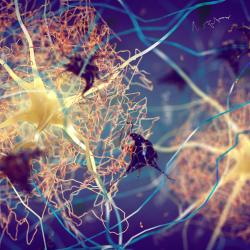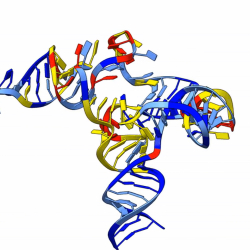Caring Professor Inspires Corporate Success
 When Jim Cramer, host of CNBC’s Mad Money show speaks, investors listen. In early June, as the economy continued to recover from the Great Recession, Cramer noted: “When economies around the world are slowing, we circle the wagon around recession-resistant companies that can grow even when the economy is terrible here and abroad. Seattle Genetics is one of those companies.”
When Jim Cramer, host of CNBC’s Mad Money show speaks, investors listen. In early June, as the economy continued to recover from the Great Recession, Cramer noted: “When economies around the world are slowing, we circle the wagon around recession-resistant companies that can grow even when the economy is terrible here and abroad. Seattle Genetics is one of those companies.”
Cramer’s guest that day: Clay Siegall, B.S. ’82, Zoology, president, chief executive officer and chairman of the board of Seattle Genetics, Inc. (Nasdaq: SGEN), which produces a diverse pipeline of antibody-based therapies for cancer patients. In August 2011, the company’s lead drug, ADCETRIS, was approved by the U.S. Food and Drug Administration for use in treating two types of lymphoma patients. In addition, Seattle Genetics has a deep pipeline of anti-cancer drugs in clinical development for a wide range of tumor types. Currently, more than 15 targeted therapies are being evaluated in clinical trials using Seattle Genetics’ industry-leading antibody-drug conjugate (ADC) technology.
As an undergraduate, Siegall thought about becoming a physician or pursing an advanced degree in business or science. When his father was diagnosed with cancer his choice became clear: discover and develop more effective cancer therapies. “It was an area where real improvements were needed,” says Siegall, who credits the input of Biology Associate Professor William Higgins with key guidance. “Dr. Higgins was important to my decision making. He explained what research entails, and the time and effort he took with me was critical to my career.” Higgins also played an important advisory role for Siegall’s older brother, Darren, B.S. ’76, Zoology, who became a dentist.
Through an internship at the National Institutes of Health (NIH) in Bethesda that Higgins helped arrange, Siegall became enamored with the power of biomedical research and his commitment to the field was solidified. “To make a difference and to understand what makes cancer cells tick takes a lifelong commitment,” says Siegall, whose father was treated at NIH.
After he received his Ph.D. in genetics from George Washington University, Siegall held a postdoctoral appointment for a number of years at the National Cancer Institute, where he discovered targeted cancer therapies before joining the Bristol-Myers Squibb Pharmaceutical Research Institute. “Watching my father’s progression with cancer from when I was 19 years old until his death when I was 24 made me acutely aware of the limited tools available to oncologists at the time.”
When the Seattle facility of Bristol Myers closed in 1997, Siegall seized the opportunity to co-found a company, and the rest is history. He guided Seattle Genetics from its inception as a small start-up to securing more than $675 million through public and private financings, including the company’s initial public offering in 2001. Since then, the company has forged strategic collaborations with the likes of Bayer, Pfizer, Abbott and the Genentech division of Roche. “I co-founded Seattle Genetics to pursue targeted therapies for cancer patients. I was trained as a scientist but also had to develop skills to run the business of a company while on the job,” says Siegall, who serves on the board of directors of Alder BioPharmaceuticals, a private biotechnology company. He has authored more than 70 publications and holds 15 patents.
Throughout his career, Siegall has not forgotten the kindness and knowledge shared by his former professor. “Dr. Higgins really cared about students, he spent a lot of time thinking about what we needed to succeed,” recalls Siegall. In appreciation, he contributed to the William J. Higgins Endowed Professorship. “My goal with this gift is to encourage a professor to focus on students and their career choices just as Dr. Higgins has done so wonderfully for many years.”
As successful as his company has become, Siegall still embraces the work ethic he developed as an undergraduate when he held several jobs to pay for his college education. “When you think you are working hard, step it up to the next level. You can always push yourself a little harder.”







